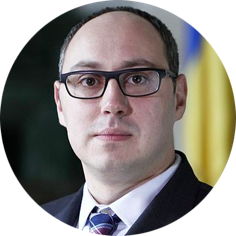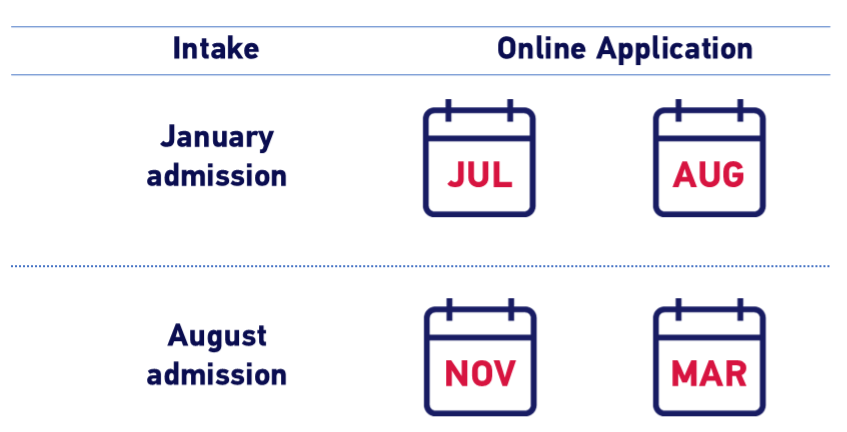Application for August 2026 admission is open from 1 Nov 2025 to 31 March 2026.
The MPA programme examines best practices in public administration in Asia to enhance the skills in decision making, governance, and policy design and implementation. NCPA delivers immersive learning experiences using a combination of theory and practice. With former politicians and senior government officials as members of our faculty, students will be equipped with the know-how to develop and implement strategic policies to meet the challenges in their countries, in turn enhancing their effectiveness as public administrators.
Serving as a cross-national platform, the programme seeks to connect and nurture aspiring public administrators and leaders both in Asia and globally. We equip students with the knowledge, analytical skills and hands-on experience in public administration, management and policy making, which enables future leaders from different countries to share a global vision.
- A bachelor’s degree
- Minimum of two years' or more of full-time work experience
- For students from universities where English is not the medium of instruction, a good IELTS/TOEFL test score is required. Test dates must be within 2 years or less from date of application. The minimum test scores are as follows:
| TOEFL / IELTS | Minimum Test Score |
|---|---|
| TOEFL | Internet-based: 88-89 |
| IELTS | Score of 6.5 Min 5.5 for each skill module |
The selection process is competitive, and meeting the minimum requirements does not guarantee admission. Each applicant will be evaluated holistically, considering their educational background, work experience, and other relevant qualifications.
Note: Each applicant's previous academic performance, work experience, and Statement of Purpose will be carefully reviewed by the university.
The curriculum consists of 8 courses (comprising 2 core courses and 6 electives) and 1 capstone paper. The programme will equip students with knowledge, analytical skills and hands-on experience in public administration, management and policy-making.
For this graduate coursework programme, students are required to fulfil the following:
| 2 Core Courses |
| 6 Elective Courses |
| Capstone Paper |
There are 2 semesters in an academic year, each consisting of 13 weeks of teaching, 1 week for examination preparation and 1 week for examination.
FULL-TIME STUDY
Full-time students typically complete their studies within 12 months (2 semesters).
PART-TIME STUDY
The part-time English MPA Programme allows working mid-career professionals to upgrade their knowledge while pursuing professional growth opportunities.
Part-time studies typically span a period of 18-24 months (3-4 semesters).
Class Schedule
Classes are usually on weekday evenings, or in the day on weekends.
Classes are usually held at the NTU main campus.
CORE COURSES
ELECTIVES
The course build understanding of the changing threat landscape and how governments and partners should manage existing and emerging security threats. With rapid globalisation, the spectrum of threats have widened from conventional military threats to non-traditional security threats. The security threats range from missile and fissile proliferation, organised and common crime, piracy and robbery at sea, infectious diseases and pandemics, cybercrime and information infrastructure attack and terrorism and extremism. To manage threats, national security agencies, law enforcement, and military forces increasingly work with partners in community, private sector and academia. While the functional focus of the course is global, the regional focus is East Asia, with an emphasis on how Singapore manages security challenges.
PM6139 The Singapore Economy
This course is designed for non-Economics graduate students who have a keen interest to develop a deeper understanding of the Singapore economy. This course provides a broad introduction to the economic structure, the development experiences, and the economic policies of Singapore – their rationale, their design and what they have achieved. The course starts with a brief introduction to key concepts in Micro- and Macro-economics and Singapore’s development experiences, and then proceeds to cover Singapore government’s approaches to microeconomic and macroeconomic management. As many of Singapore’s public policies are well grounded in the rigor and discipline of economics, this course aims to help students appreciate the economic rationales behind many of Singapore’s public policies. This course also aims to equip students with the knowledge of the working of key macroeconomic policies, such as fiscal policy, monetary policy, wage policy and social security policies.
PM6140 Program Evaluation
Policy and program evaluation constitute a key element of contemporary policymaking and refer to a comprehensive, often multi-year study of program/policy function and outcomes. This course will expose students to: 1) the complexity and scope of policy/program evaluation; and 2) the basic methods of policy/program evaluation.
PM6141 Global Finance: Policy, Economics and Technology
This course will provide a broad and policy-oriented understanding of global finance. It will take a multidisciplinary approach by drawing from public policy, economics, and urban studies. More than simply an economic phenomenon, finance affects the daily lives and urban environs of citizens across the world. While this course is largely based on the case of Singapore, it will also draw on the examples of other major global financial centres.
PM6142 Politics and Security in Asia
This course is intended to provide a comprehensive analysis on inter-state politics and regional security in Asia, covering Northeast Asia, Southeast Asia, and South Asia. Many analysts believe that with the rise of China, a power shift from the US to China is taking place in Asia. This power shift is generating tremendous impacts on the geopolitical alignments and security issues in Asia. The regional order is undergoing a profound transformation. This process of transformation, however, is expected to be very complicated and even dangerous given the intensifying strategic rivalry between China and the US, territorial and maritime disputes between/among various regional states, and the history of inter-state relations in the region. In addition to the impacts of Sino-US relations, the Asian region has been faced with a number of daunting security challenges, including the North Korean nuclear issue, the East China Sea dispute, the Taiwan issue, the South China Sea disputes, and the border dispute between China and India. None of these issues can be easily resolved and they will continue to affect peace and stability in Asia. There are other important issues that are pertinent to Asian security, for instance regional multilateral institutions, economic interdependence, nationalism and domestic politics in various regional states, as well as non-traditional security challenges. These will be the main topics that will be explored in this course.
PM6143 Innovation in the Public Sector & Policy Design
This course examines governance in a world of increasing complexity, hyper-connectivity, high level of uncertainty. In this challenging context, the public sector’s role in developing innovative solutions is critical. Public sector innovation has distinctive characteristics that make it irreplaceable, and they are linked to the authority of the State and the legitimacy of government to intervene in the public sphere to change the course of events in a manner judged preferable for society.
Through the interplay of technology, Public-Private-People (3Ps) collaboration, design thinking and behavioural insights, this course is designed to help students to analyse complex policy problems presented in case studies and develop innovative policy solutions to address long-term challenges.
PM6144 Public Economy & Budgeting Issues
This course introduces you to an in-depth examination of the forces that influence the behaviors of public administrators and policymakers engaged in the decision-making process on political-economy and public budgeting issues. A fundamental purpose of the course is to train you to have the economic way of thinking yet socially responsible decisions and to show how such approaches enable you to make more informed and better choices at an advanced level, especially given limited financial resources.PM6145 Contemporary politics of migration governance
This course will introduce you to key themes in contemporary migration politics and policies. Migration is an important sector for public administration and public policy despite the COVID-19 pandemic’s seeming disruption to organised migratory flows.
PM6146 The China Economy: Reform, Geopolitical Rivalry and Future Trends
Since Deng Xiaoping’s reforms in 1979, China has undergone remarkable domestic economic and social transformation. Its impact on the rest of the world has also been momentous and far-reaching.
When President Trump moved into office on January 2017, the relationship between US and China has degenerated into acrimonious trade and tech war. After the outbreak of the coronavirus in late 2019, the relationship has spiraled further downwards. Despite the election of President Joe Biden in January 2021, the relationship has continued to be conflictual and belligerent. In 2022, the Biden Administration escalated the confrontation by launching the Chip War, in attempting to slow down China’s technological development. The tension of US and China relationship also resulted in global corporates relocating out of China to ASEAN, India and Mexico to diversify their supply chains and production bases.
This course is designed to enhance students’ understanding of these crucial transformations by looking at both economic development and geopolitical dynamics as well as analyzing future trends. This course will examine these new dynamics and draw their implications for China, ASEAN, Singapore, and the global economy as well as the international order.
PM6147 E-Government and Governance
Electronic government (e-government) refer to the use of information and communications technologies (ICTs) and frontier technologies such as artificial intelligence (AI) to improve the delivery of public services to citizens, boost citizens’ trust in the public sector, enhance government efficiency and responsiveness, and promote good governance. Many countries have been moving toward greater digital transformation of governments through automating labor-intensive processes, integrating government information systems, digitizing more public services, using AI-driven analytics to analyze data to improve decision making, and the use of online systems to connect with businesses and citizens. Governments worldwide believe that e-government has the potential to realize good governance, which refers to key attributes of inclusiveness, efficiency, effectiveness, responsiveness, transparency, accountability and participation.
This course aims to provide both theoretical and empirical knowledge for graduate students interested in e-government and governance and equip them with problem-solving and critical thinking skills to analyze local and international case studies of e-government.
PM6148 AI for Public Governance
The objective of this course is to understand the latest artificial intelligence (AI) technologies and their impact on the functions of government and public governance. Since November 2022 when ChatGPT was released, AI technology has been made easily accessible to the public in general. The spate of AI-based technologies and services that came thereafter has tremendously changed the landscape of AI applications. It is in this context that it is timely to understand the applications and implications of AI in all domains, including public governance. This course equips you with technical knowledge of traditional and generative AI, explores their applicability to revolutionize functions of public governance and understand the regulatory and trustworthiness aspects of AI for public governance.
CAPSTONE
NCPA is dedicated to grooming and mentoring the next generation of public administrators. Through its MPA programme, graduates can look forward to fulfilling careers as future leaders in the public sector. The programme has also groomed many leaders in both public and private sector over the years.
 |
This program helped me better understand public administration and its technical application in the Singapore Government sector. The learning environment is so comfortable with good accommodation facilities, excellent classroom, and helpful staff. The professors are no doubt very professional; the courses were also well delivered. In class, we share knowledge and support each other. I have learnt a lot in the policy studies aspect which can be applied in my career in the government sector. Mr Jafirman Torang Avery Louerens (Class of 2021) |
 |
The programme provided real and robust application of public policy and economic theories using behavioural insights to resolve social problems, experiential learning journeys like corporate visits, and peer and team e-learning, which created a rich experience and understanding of government policies and implementation in the community. With dedicated professors and their specially curated courses, I have developed a greater appreciation and new insights on both regional and global perspectives; the opportunities that arose with China as the 2nd largest economy; the impact beyond economics, through relevant cross-faculty courses. Beyond the rigorous academic programme, the MPA has given me opportunities to build friendships and networks in an increasingly connected world. I strongly recommend the MPA programme to prospective candidates keen on embarking on public policy and administration studies. |
 |
“As Ambassador of Ukraine to Singapore, I was keen to learn about Singapore's best practices in public administration and economic policies that have led to the country’s remarkable success. NCPA’s MPA programme has enriched my knowledge in various fields of public management. The topics such as government’s talent strategies in the face of globalisation and whole-of-government approach, definitely contributed to a better understanding of how the Singapore government works. It has also helped me to identify some specific areas where my country can apply Singapore's experience in good governance. I strongly recommend the NCPA MPA programme for leaders, practitioners and enthusiasts in public policy”. Mr Dmytro Senik (Class of 2019)Deputy Foreign Minister, CDTO, Ministry of Foreign Affairs of Ukraine Former Ambassador of Ukraine to Singapore, Brunei and New Zealand |
 |
“The programme has allowed me to develop a good insight into public relations. The professors have done a tremendous job in delivering in the classes. Every session in class is always fruitful, learning new interesting knowledge for me.” Mr Richard Lew (Class of 2019)Deputy Constituency Director Pek Kio Community Club |
 |
"The MPA programme expanded my perspectives beyond the corporate world and provided a holistic learning platform that brought practice and theory together. The culturally diverse student population and highly engaging professors facilitated thought-provoking discussions and encouraged critical thinking at a higher level. It was a great experience, with plenty of opportunities to learn inside and outside the classroom!" Ms Woo Hui Wen (Class of 2018)Associate Director BTI Executive Search |
 |
"The programme pushes your creativity, puts you in a solution-driven mindset, and gets you to the forefront of policy-making. It gave me a new perspective on management and provided the tools and real-world examples on how to overcome challenges that any organisation may face, such as creating new business processes and adapting to new regulations. The programme has an immersive environment where students freely discussed real-world policy issues and the details behind their implementation. My management class has been particularly useful for me as the tech industry is known for its fast-paced and ever-changing environment. I still revisit the literature from my management class on how to institutionalise organisational change." Mr Ragua Alvarez Daniel Alfonso (Class of 2018) |
 |
"The NTU MPA programme has a strong reputation with a comprehensive curriculum on contemporary issues in public administration. The MPA cohort has a rich diversity and experience in real-world practice to support robust participation. The highlight of the programme was the opportunity to engage and exchange point-of-view with senior officials from the Chinese government, many of whom are alumni of the NTU programme. The collective network nurtured during this learning journey continues to yield friendship through the valuable platform of the alumni association." Mr Vinson Chua (Class of 2018)Director, Healthcare Business ST Engineering Electronics Ltd |
 |
"I was keen to gain insights into how Singapore came to become one of the world’s most developed economies and well-governed countries in such a short span of 60 years since independence. Several professors helped satiate my curiosity because they had the privilege of working alongside Singapore’s Pioneers like Lee Kuan Yew and Goh Chok Tong. Our class comprised students from various ministries or government institutions who helped round off my learnings both through classroom discussions and through various group presentations." Mr Nakul Gupta (Class of 2018)General Manager, Customer Support GE Aviation, Asia Pacific |
 |
“The programme has helped me develop a better understanding of the fundamental principles of managing a country. It has also taught me how to be creative and still find future improvements for such a beautifully run country like Singapore.
I learned that change is always happening and we should continue to find ways to better our government and country. ” Ms Catherine Villar-Perez (Class of 2017) Consular and Signing Officer Philippine Consulate General in San Francisco |
 |
“What I love most is the opportunity to discuss and explore topics with other students in a safe environment, which allows us to critically evaluate our own as well as others’ practices. The professors are very skilled at encouraging critical thinking and supporting students to fully participate. This makes it a worthwhile investment. ” Mr Justinian Habner (Class of 2017)Country Director Department for International Trade (DIT) British High Commission in Singapore |
Tuition Fees
The tuition fee for each local/international student is S$44,720 (including GST) for AY2026-2027. This fee excludes miscellaneous fees (health check-up, entry visa, student’s pass, accommodation, meals, overseas immersion, etc.)
Every year, fees are reviewed and subject to revisions. As and when fees are revised, the new fees will be applicable to new students. All fees listed are in Singapore dollars (S$) and are inclusive of Goods and Services Tax (GST).
NTU Post-graduate Incentives
To encourage lifelong learning and make postgraduate education more accessible, Nanyang Technological University Singapore (NTU Singapore) is introducing new initiatives to defray the cost of a majority of its coursework-based master’s programmes starting from the academic year 2024.
All Singaporeans and Permanent Residents:
From the academic year starting in 2024, Singaporeans and permanent residents who enrol in self-funded master’s by coursework programmes at NTU will enjoy a $5,000 subsidy, with those in need of financial aid will receive up to $10,000.
All NTU Alumni:
All NTU alumni will receive an additional 10 per cent tuition fee rebate. These initiatives, announced by NTU President Prof Ho Teck Hua at the NTU Alumni Homecoming event, are meant to promote lifelong learning and make postgraduate education more accessible for all.
The new alumni rebate and subsidy for a majority of NTU’s coursework-based master’s programmes add to the University’s efforts to encourage lifelong learning.
Fee Payment Schedule
The tuition fee is payable on an instalment basis, across two semesters for full-time students, and four semesters for part-time students.
Miscellaneous fees are applicable to both local and international students. Please click here for the updated fees.
Application Deadline
The programme offers two intakes each year.

Check the updates above for the exact application dates.
Submitting your application
| Step 1: | Submit your application form and upload your supporting documents online. |
| Step 2: | Your 2 referrals should email the completed referral reports to [email protected] Please use the Checklist (supporting documents required) below to ensure that you have included all the required supporting documents in your email submission. |
Documents Checklist
Please use the Checklist below to ensure that you have included all the required supporting documents in softcopy.
| Supporting Documents Required | Remarks | |
|---|---|---|
| 1 | Resume or CV | A concise document of not more than 3 pages, briefly explaining your job responsibilities and your accomplishments. |
| 2 | Passport-size photo | Two most recent colour photographs (taken within the last 3 months), including one attached with the softcopy application form. |
| 3 | English proficiency report | Applicants are required to take one of these tests if English was not the medium of instruction used at tertiary level (bachelors).
|
| 4 | Two (2) Referee Reports / Recommendation letters |
|
| 5 | Other Supporting Documents |
|
Only complete applications will be processed for assessment. An application is deemed complete only if the following are met:
- Completion of online application form, and
- Completion of application fee payment, and
- Complete upload of all required supporting documents online through the application portal, and
- Complete submission of two referee reports/ letters
Some shortlisted candidates may be interviewed by the Admissions Committee to gauge their suitability for the programme.
Please note that only shortlisted applicants will be notified.
Scholarships
MPA scholarships bear no bond or obligation for scholars, and are offered on a merit basis to student who demonstrate a strong passion in understanding public administration.
| MPA (English) ASEAN Scholarship | |
|---|---|
| Name of Scholarship | MPA (English) ASEAN Scholarship |
| Objective | To recognise students from ASEAN countries who have demonstrated strong passion in understanding public administration. |
| Amount & Duration | Funding of full-time tuition fee of one year, excluding miscellaneous fees |
| Eligibility | ASEAN students(including Singaporean) pursuing the Master of Public Administration (MPA) programme at NTU. Application is open to newly enrolled full-time MPA (English) students completing the programme within two semesters. |
| Selection Criteria | Applicants shall be assessed based on their academic performance obtained in their Bachelor degree and work experiences. Applicants must also demonstrate exemplary character, strong passion in understanding public administration, enthusiasm in promoting and enhancing the MPA (English) programme. |
| Application | [ Download Scholarship Application Form ] Please send signed and completed application form to [email protected] |
| Deadline for submission | Submit before the closing date of the admission application. |
| MPA (English) International Scholarship | |
|---|---|
| Name of Scholarship | MPA (English) International Scholarship |
| Objective | To recognise students from International countries who have demonstrated strong passion in understanding public administration. |
| Amount & Duration | Funding of full-time tuition fee of one year, excluding miscellaneous fees |
| Eligibility | International students pursuing the Master of Public Administration (MPA) programme at NTU. Application is open to newly enrolled full-time MPA (English) students completing the programme within two semesters. |
| Selection Criteria | Applicants shall be assessed based on their academic performance obtained in their Bachelor degree and work experiences. Applicants must also demonstrate exemplary character, strong passion in understanding public administration, enthusiasm in promoting and enhancing the MPA (English) programme. |
| Application | [ Download Scholarship Application Form ] Please send signed and completed application form to [email protected] |
| Deadline for submission | Submit before the closing date of the admission application . |
For more information, please contact us at +65 6592 2612 or email [email protected]
On-Campus accommodation
As demand for housing exceeds supply, only full-time graduate students may apply for graduate housing. Successful applicants may stay for a maximum period of one academic year. Applicants are encouraged to look for alternative accommodation arrangements while waiting for their NTU housing application results.
FAQs
Click for MPA-E FAQs

